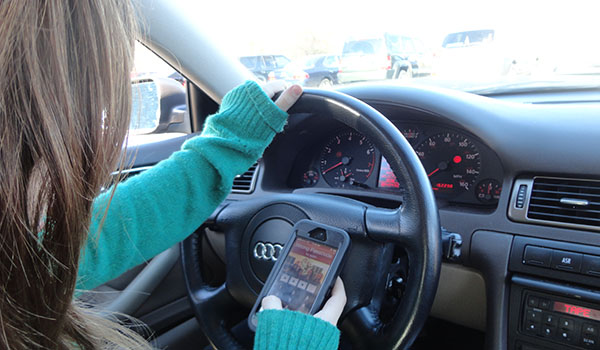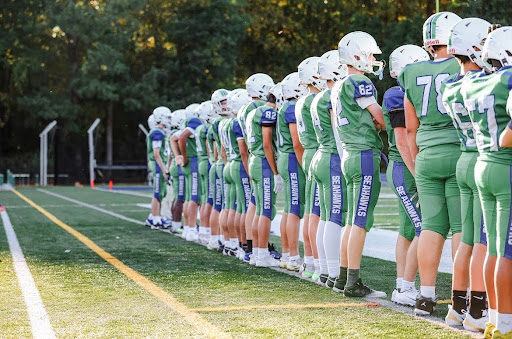The Virginia General Assembly wants to crack down on texting and driving with laws stricter than those currently enforced by state policemen.
The current law prohibits drivers under the age of 18 from texting and driving. It also makes texting and driving a secondary offense for those of age, meaning a police officer cannot stop a vehicle solely to give a texting and driving citation.
The current misdemeanor offense incurs a $20 fine the first time an incident of that nature occurs and $50 fine for any subsequent offenses.
The new law, drafted by state delegates Ben Cline, a Republican from Rockbridge County, and Scott Surovell, a Democrat from Fairfax County, would toughen the law on texting and driving, similar to crackdowns in Maryland and Washington, D.C., both of which already banned the act.
“You need to be able to keep your eyes on the road and hands on the wheel,” Cline said in a press conference with Surovell Dec. 5.
The law, if passed by the General Assembly, would give police officers the authority to stop drivers who are texting and driving and issue them a more serious punishment for the infraction, which would be considered reckless driving. The punishment could include up to one year in jail and a $2,500 fine.
Cline referenced in the conference that although he supported the existing law that labels texting and driving as a secondary offense when it was passed in 2009, the situation has escalated.
“Anecdotally, we’ve seen from law enforcement that it’s not being followed by a large segment of the population due to the low fines and the fact that it [texting and driving] is a secondary offense,” Cline said.
Surovell championed this law after a 2011 incident in Fairfax County left a college student dead at the hands of a driver named Jason Pope, who was texting. Surovell represented the college student’s family in court.
The judge of the case ended up acquitting the driver, citing that there was insufficient evidence that the driver’s texting caused a lack of attention to the road even though it was confirmed that Pope opened a text message moments before he crashed his vehicle.
This sort of incident is the kind that Surovell wishes to avoid.
“I hope that if this legislation is enacted that people will have a greater understanding of just how dangerous texting while driving can be,” Surovell said.
While the Virginia law would affect all drivers, there is a growing national concern about teen drivers’ habits behind the wheel.
According to a recent Pew Research Center survey of 800 students up to the age of 17, 50 percent of those who have cell phones admitted to texting while driving.
The survey also revealed that 48 percent of those surveyed said that they have been a passenger in a vehicle where the driver was texting and driving.
“There should be stricter laws because it’s really dangerous and kids already have a small attention span,” senior Zach Smith said.
Specifically in Virginia, a research study conducted by the Virginia Tech Transportation Institute reported that drivers who text are 23 times more likely to be involved in a car crash.
Some students admit that they are guilty of texting and driving, sometimes resulting in petrifying consequences.
“I rear-ended someone when I was texting and driving,” senior Aerin Raguso said. “It was pretty scary. Now I only text at stoplights.”
Although a driver technically would not be texting and driving simultaneously since the car is stopped at a light, under the new law, the driver can still be held accountable for texting and driving because the only safe way to operate a phone behind the wheel is when the car is off and the key is not in the ignition.
Although many students express support for the law’s revision there is uncertainty about the effectiveness of the aforementioned law.
“I always swerve when I text and drive, so it’s definitely a problem,” junior Brooke Dempster said. “But I don’t think that the cops will catch more people by making it a first offense.”
The dissent with the law also extends to loopholes the law creates. The revised law only declares that texting and driving is illegal, but the law does not specify how drivers who send emails or go on the Internet can be punished.
Nevertheless, the law strives to deter drivers, at all ages, from creating detrimental habits such as texting and driving.
“A combination of the two [texting and driving] has proven to be deadly for many in Virginia and across the country,” Cline said. “We need to send the message to young people, and all adults, who are behind the wheel that [phones] need to stay in your pocket while you’re behind the wheel.”




















